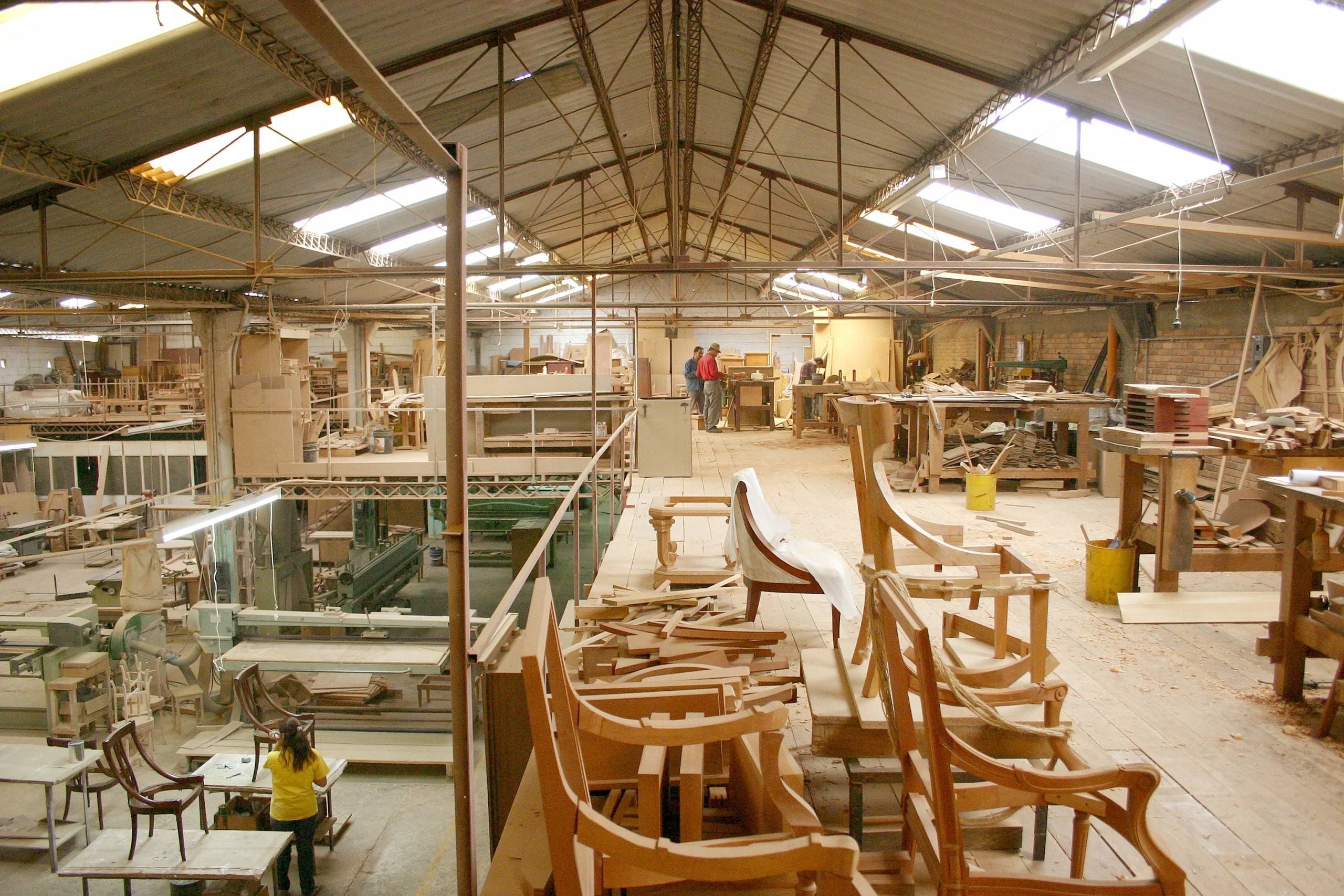Everything was running smoothly in a bustling factory until one rainy day when the floor became slippery, and a worker almost took a bad fall. That close call made everyone think about safety. The factory owner observed something had to change to protect his staff and keep the factory running without any accidents.
After searching for the ideal option, he came across anti-slip rubber sheets. These weren’t just any average floors; they were designed to avoid slippage even in the busiest areas. Once installed, the change was obvious—no more worry about slick surfaces, and workers worked confidently, knowing they were safe.
In this blog, we will look at why rubber sheets are the preferred choice for anti-slip flooring in factories. We’ll also discuss the role of Polycrafts, a top rubber sheet manufacturer in Pakistan, which provides high-quality products that improve safety and keep operations working smoothly.
What Makes Rubber Sheets Ideal for Anti-Slip Flooring in Factories?
Rubber sheets are widely recognized for their unique properties that make them perfect for factory settings. Below are six major reasons that highlight why rubber sheets are an excellent choice for anti-slip flooring.
1. Excellent Traction
Rubber provides exceptional traction, reducing the risk of slips and falls. Its textured surface offers more grip than smoother materials, especially in areas exposed to liquids or grease. This makes rubber sheets the ideal choice for factories that deal with spills or slippery conditions, ensuring that workers and machinery remain stable.
2. Durable and Long-Lasting
Rubber sheets are known for their durability. They can resist high foot traffic, moving equipment, and even heavy machinery without displaying signs of wear and tear. This longevity means businesses won’t need to replace the flooring frequently, which makes it a cost-effective option over time.
3. Resistant to Chemicals and Oils
Factories often deal with hazardous materials like chemicals, oils, and solvents. Rubber is resistant to many of these substances, ensuring that it doesn’t degrade when exposed to harsh conditions. This chemical resistance adds another layer of safety by maintaining the integrity of the flooring.
4. Easy to Clean and Maintain
Industrial environments can be dirty, but rubber sheets are very easy to clean. They do not retain liquids or stains, making it simple to clean up spills. Also, rubber’s low maintenance needs make it a hassle-free option for busy factory settings.
5. Shock Absorption
Rubber sheets offer excellent shock absorption, protecting workers from strain during long hours of standing or walking. The cushioning effect reduces fatigue and provides a safer, more comfortable surface. This also prevents damage to machinery and equipment, adding to the overall benefits of rubber flooring.
6. Noise Reduction
Factories are frequently noisy environments due to machinery, tools, and employees. Rubber sheets absorb noise, which leads to a quieter and more focused work environment. This feature can improve employee concentration and overall productivity.
What Are the Types of Rubber Sheets Available for Anti-Slip Flooring?
There are several types of rubber sheets available for industrial settings, each offering specific advantages depending on the factory’s needs. Here are some common types:
- Ballistics Rubber Sheets: Known for their extreme durability and ability to resist punctures, they are used in environments where heavy impacts are expected.
- Silicone Rubber Sheets: Heat-resistant and flexible, silicone rubber sheets are ideal for factories dealing with high-temperature machinery or processes.
- Natural Rubber Sheets: These are eco-friendly and offer high elasticity and tensile strength, perfect for general factory use.
- EPDM Rubber Sheets: Resistant to weather, UV rays, and ozone, EPDM is best suited for both indoor and outdoor factory environments.
- Neoprene Rubber Sheets: These sheets are chemical- and oil-resistant, making them ideal for factories dealing with harsh chemicals and oils.
How Do Rubber Sheets Compare to Other Flooring Materials for Industrial Settings?
When choosing flooring for industrial settings, several materials come to mind. Here’s a comparison chart that outlines how rubber sheets stack up against other materials:
| Features | Rubber Sheets | Vinyl Flooring | Epoxy Flooring |
| Traction | Excellent for slip resistance | Moderate traction but less durable | Good traction, but may become slippery |
| Durability | Highly durable, long-lasting | Prone to scratches and tearing | Durable but may crack under pressure |
| Maintenance | Easy to clean and maintain | Needs more maintenance due to wear | Requires regular resurfacing |
| Shock Absorption | High, reduces strain on workers | Low shock absorption | Medium shock absorption |
| Chemical Resistance | Resistant to chemicals and oils | Limited resistance | Moderate chemical resistance |
| Noise Reduction | Significant noise reduction | Minimal sound insulation | Moderate noise reduction |
What Are the Installation Steps of Rubber Sheets in Industrial Settings?
Installing rubber sheets in industrial settings requires careful planning and execution to ensure optimal safety and performance. Below are the key steps involved:
Step 1 Preparing the Surface
The first step involves cleaning and preparing the floor. Any debris, dust, or imperfections need to be removed, and the surface should be smooth. If necessary, repair any cracks or uneven spots on the floor before installation. A well-prepared surface ensures better adhesion and durability.
Step 2 Measuring and Cutting the Rubber Sheets
Measure the area where the rubber sheets will be installed and cut the sheets accordingly. Rubber sheets often come in rolls, so it’s crucial to get the right dimensions to avoid wastage or the need for additional adjustments later.
Step 3 Applying Adhesive
Apply a specialized adhesive to the prepared floor surface. Make sure the adhesive is evenly spread across the area to prevent bubbles or gaps. Choose an adhesive that is suitable for industrial environments to ensure long-term durability and performance.
Step 4 Laying the Rubber Sheets
Carefully lay the rubber sheets over the adhesive, pressing them down to ensure a smooth finish. Use a roller to remove any air pockets and ensure full contact between the rubber sheet and the adhesive.
Step 5 Sealing the Edges
After the sheets are laid, seal the edges to prevent moisture or debris from getting underneath. This step is crucial in industrial settings where spills and debris are common. A sealed edge ensures the flooring remains intact and prevents damage.
What Types of Injuries Can Rubber Sheets Prevent in Industrial Settings?
Rubber sheets significantly reduce the risk of various workplace injuries. Here are some of the common injuries they help prevent:
- Slips and Falls: Rubber sheets provide excellent traction, reducing the risk of slip-related injuries.
- Fatigue-Related Injuries: The cushioning effect of rubber sheets prevents fatigue and related injuries, such as muscle strains.
- Impact Injuries: Rubber’s shock absorption helps protect workers from injuries caused by heavy machinery or falling objects.
- Chemical Burns: In areas dealing with chemicals, rubber sheets resist spills, preventing chemical burns and skin contact with hazardous substances.
Why Are Rubber Sheets Chosen for Noise Reduction in Factories?
Rubber sheets are commonly used in factories to reduce noise as they effectively absorb sound and vibrations. Machines and equipment in factories usually produce loud noises, which can be disruptive and hazardous if not controlled properly. Rubber sheets operate as a barrier, reducing the influence of sound waves. Their flexible substance dampens vibrations, preventing them from travelling through walls or floors. This results in a quieter and safer working environment for employees. Rubber sheets are also resilient and easy to install, which makes them a practical and long-lasting alternative for noise control in industrial situations.
How Do Rubber Sheets Contribute to Worker Comfort in Industrial Settings?
Rubber sheets help to improve worker comfort in industrial environments by cushioning and minimizing the strain of standing or walking on hard surfaces for extended periods. They provide a softer surface that absorbs shock, which reduces tiredness and joint pain. Rubber sheets also provide insulation against cold flooring and prevent vibrations from heavy machinery, which leads to a more comfortable work environment. Their noise-dampening abilities also contribute to decreasing total noise levels, which reduces tension and improves attention. These advantages make rubber sheets an important component in improving worker well-being in industrial settings.
Polycrafts: A Trusted Manufacturer of Rubber Sheets in Pakistan
Polycrafts is a famous rubber sheet manufacturer in Pakistan, manufacturing high-quality rubber flooring products designed to meet industrial needs. With a focus on durability and performance, our rubber sheets provide great noise reduction and vibration control in various applications. We ensure every sheet meets the highest standards, which gives you reliable options that promote worker comfort while increasing operational efficiency. Polycrafts remains a trusted name in the industry, providing solutions that make a difference in difficult circumstances while increasing productivity and safety in industrial settings.
One Last Thing: Key Highlights
Rubber sheets are essential for maintaining safety and comfort in industrial environments. Their anti-slip, durable, and chemical-resistant properties make them the top choice for factories. Whether it’s reducing workplace accidents or improving worker comfort, rubber sheets prove to be a versatile and cost-effective solution for anti-slip flooring.
To wrap it up, if you are considering anti-slip flooring for your factory, rubber sheets are the way to go. Their ease of installation, low maintenance, and long-lasting benefits make them a smart investment for industrial safety.
Step into safety and comfort with rubber sheets—the foundation of secure industrial floors.
Be sure to check back for more exciting news on ChemHubGlobal!
Also Read: Why Your Outdoor Plants Keep Dying and How to Save Them










